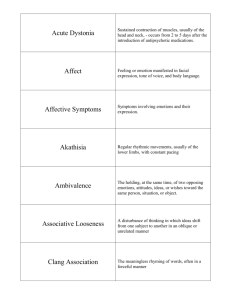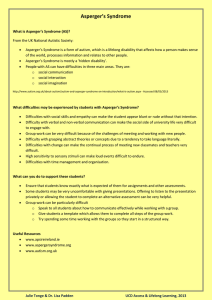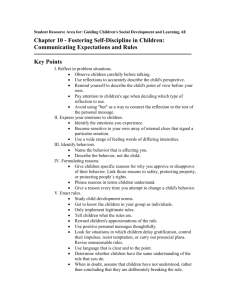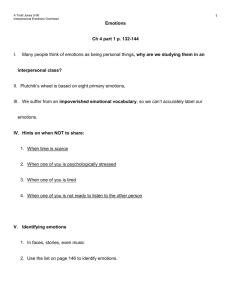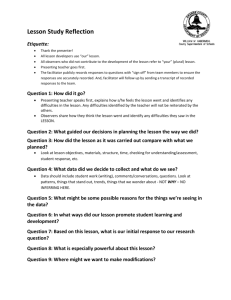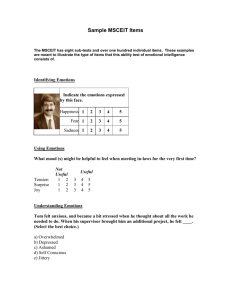Social Thinking is Coming to ABT
advertisement
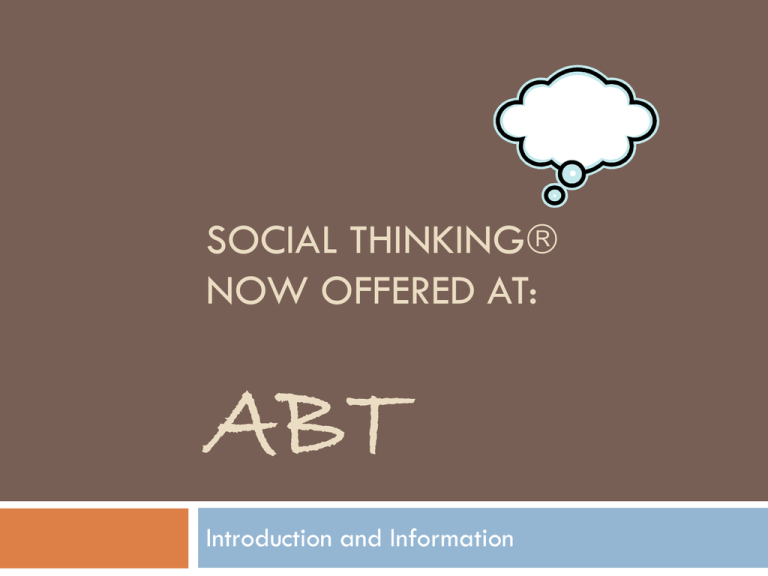
SOCIAL THINKING NOW OFFERED AT: ABT Introduction and Information What is Social Thinking?.... How we think of others Our emotions regarding their response Social Thinking is... What others do in response to our actions What we do around others Whether we are with friends, sending an email, in a classroom or at the grocery store, we take in the thoughts, emotions and intentions of the people we are interacting with. Most of us have developed our “communications sense” from birth onwards, steadily observing and acquiring social information and learning how to respond to people Because social thinking is an intuitive process, we usually take it for granted. But for many individuals, this process is but natural. And this often has nothing to do with conventional measures of intelligence. Many people score high on IQ and standardized tests, yet do not intuitively learn the nuances of social communication and interaction. Common Diagnosis of Individuals… autism spectrum disorders (high-functioning), Social communication disorder ADHD Asperger's Nonverbal learning disability (NLD) Undiagnosed social-learning difficulties – many children and adults experiencing social learning difficulties often have received no diagnosis Social Cognitive Therapy is a fun, motivating, and non-threatening way for clients to explore social thinking while increasing their knowledge of social expectations in a variety of settings, their awareness of their own behavior, and how to modify their behaviors. A treatment framework and curriculum using the Social Thinking ILAUGH model is used to guide the treatment strategies. ILAUGH Model ILAUGH stands for the different precursors that are involved in successful social interactions: I=Initiation L=Listening with Eyes, Ears and Brain A=Abstract and Inferential U=Understanding and Perspective G=Gestalt Processing (The gist, getting the main idea) H=Humor and Human Relatedness What to do if you want to make a referral for a “Social Thinking Group” Contact Abbott & Burkhart Therapy at 805.650.6290 Insurance carrier can be contacted to determine if services will be covered. If interested please fill out the Social Thinking Assessment form. This is an essential component so groupings will be comprised of individuals with similar social thinking/social cognition styles. After Assessments… Once assessments are compiled and clients are grouped according to social thinking abilities families will be informed and groups will begin. Depending upon how clients progress will determine if continued groups will be needed or desired. How therapy will been provided… Groups will have a maximum of 4 participants per one hour session. Activities will be structured around and based upon the ILAUGH Model.

